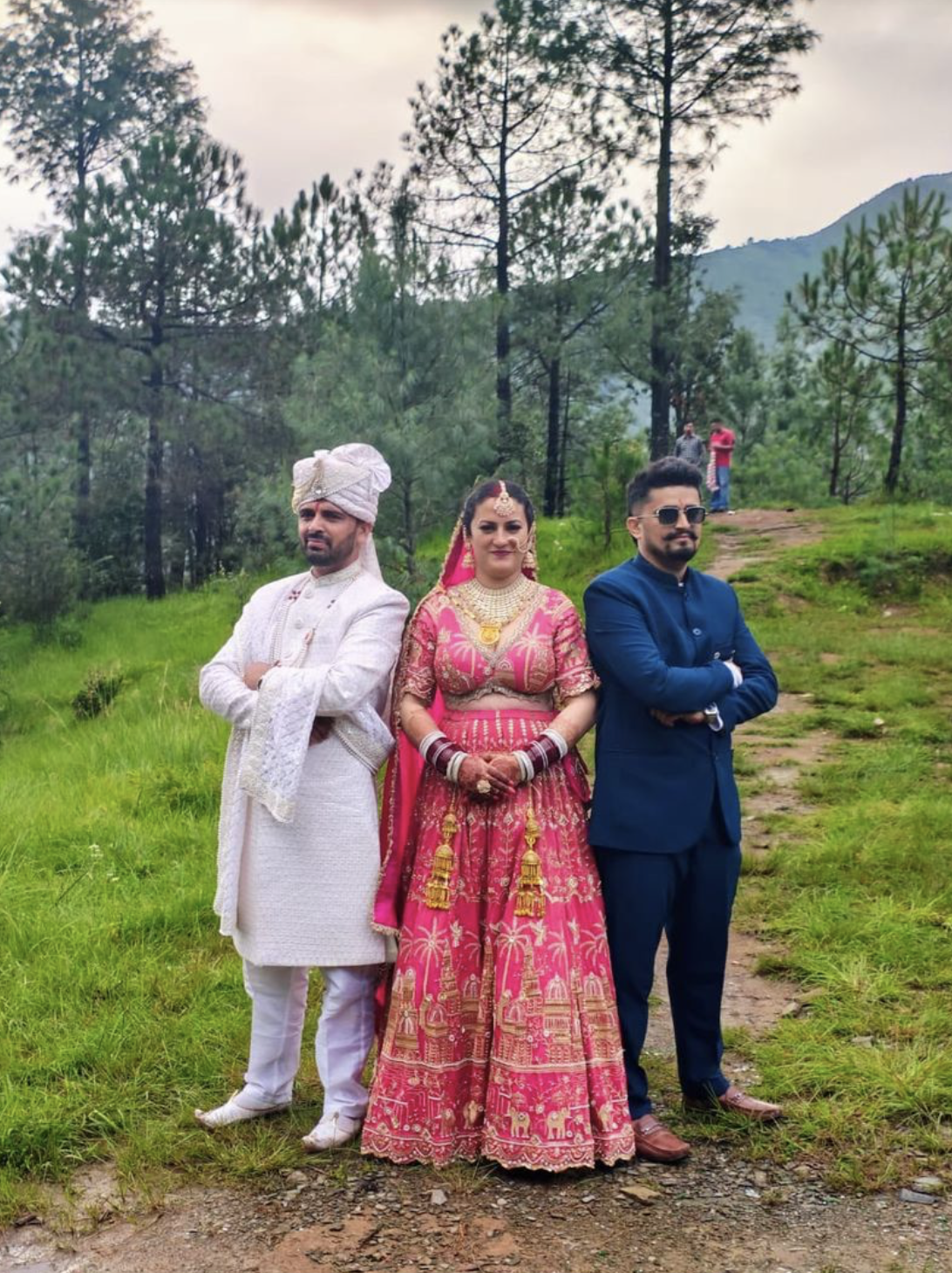Pradeep and Kapil Negi married Sunita Chauhan on 10/7 in a three-day ceremony. All three belong to the Hatti tribe and circled a sacred fire as villagers sang traditional songs.
While polyandry is illegal in India, it remains legally practiced in some tribal areas, primarily in Himalayan communities, to preserve ancient traditions.
Both grooms are educated professionals. One is a civil servant, the other works abroad. "We are openly following this tradition because we are proud of it. This was a joint decision by all three of us," Pradeep told the Press Trust of India.
His brother, Kapil, added, "We will support each other and provide stability and love for our wife and children."
 |
Bride Sunita Chauhan poses with her husbands, Pradeep (left) and Kapil Negi (right), on 10/7. Photo: India History |
Bride Sunita Chauhan poses with her husbands, Pradeep (left) and Kapil Negi (right), on 10/7. Photo: India History
Traditionally, the wife lives with each brother in turn according to an agreed-upon schedule, and all three raise the children together. The eldest brother is recognized as the legal father.
However, the wedding has drawn criticism. The All India Democratic Women's Association (AIDWA), a women's rights group, condemned the practice.
AIDWA general secretary Mariam Dhawale stated, "Such exploitative practices violate the fundamental rights of a woman."
Local leaders defended the tradition. Member of Parliament Harshwardhan Singh Chauhan affirmed that polyandry has long been a tradition in Sirmaur, home to about 300,000 Hatti tribe members. "We have customary laws to protect polyandry," he said.
Kundal Lal Shashtri, a Hatti tribe leader, also defended the custom, citing the Indian epic Mahabharata, in which the female character Draupadi married five brothers.
Minh Phuong (Straitstimes)












